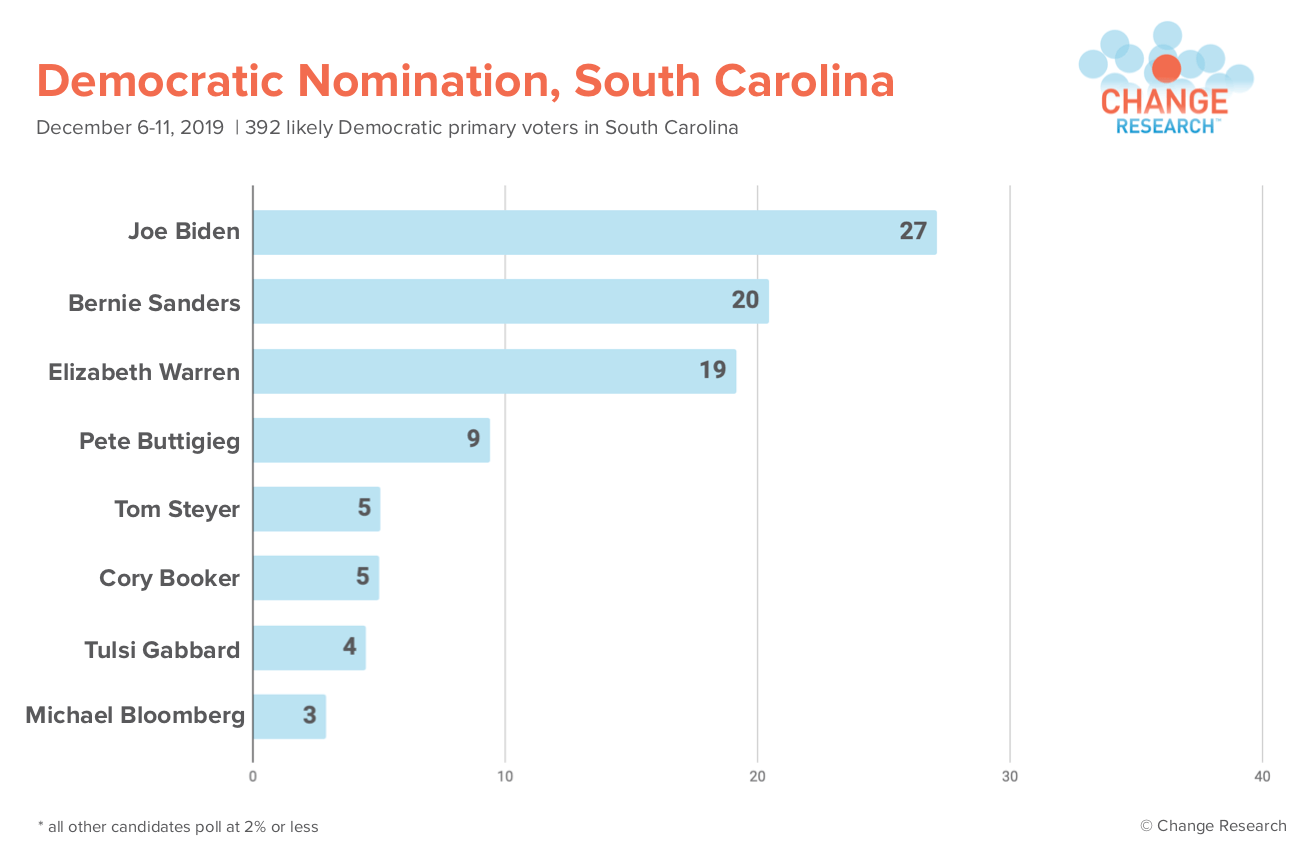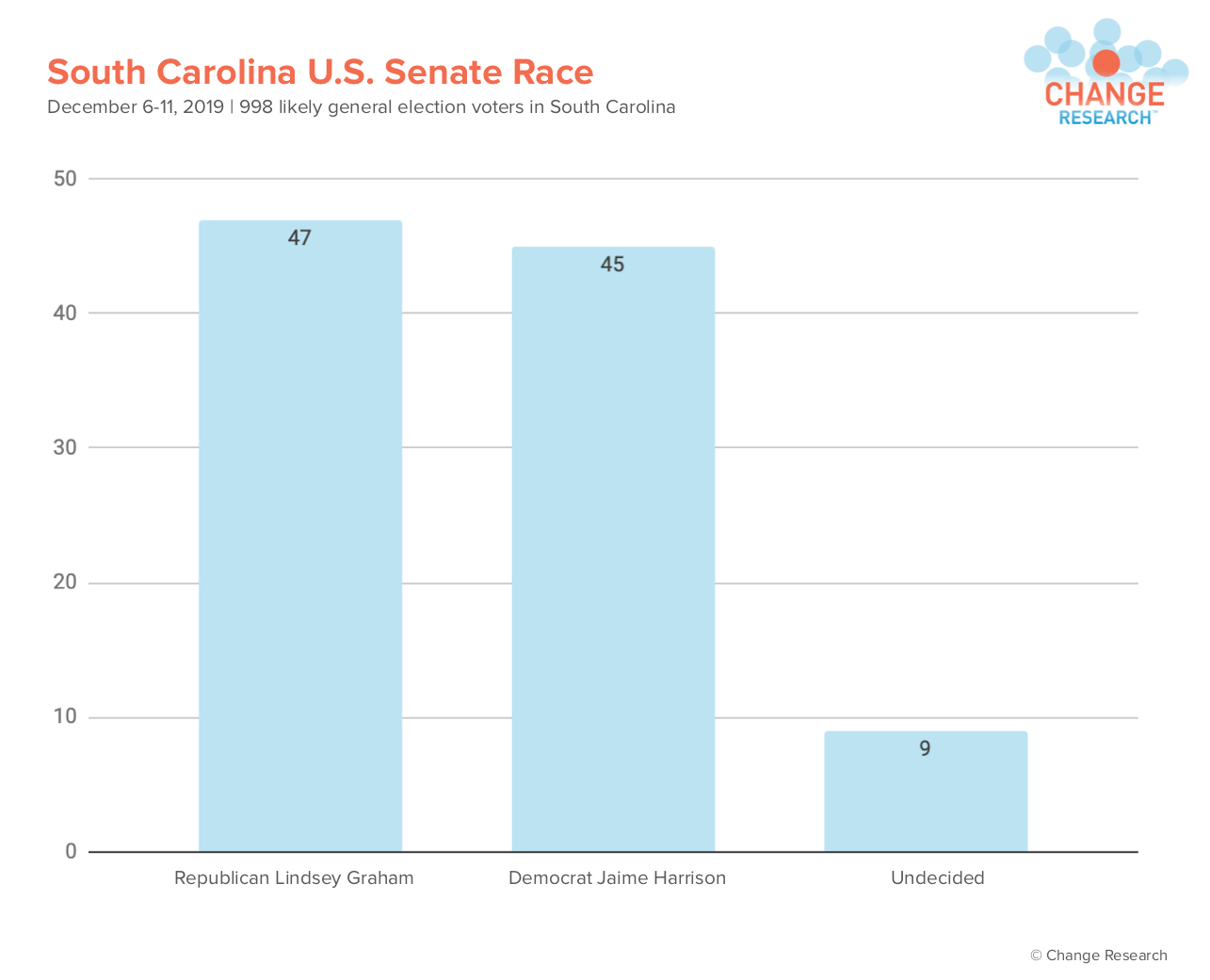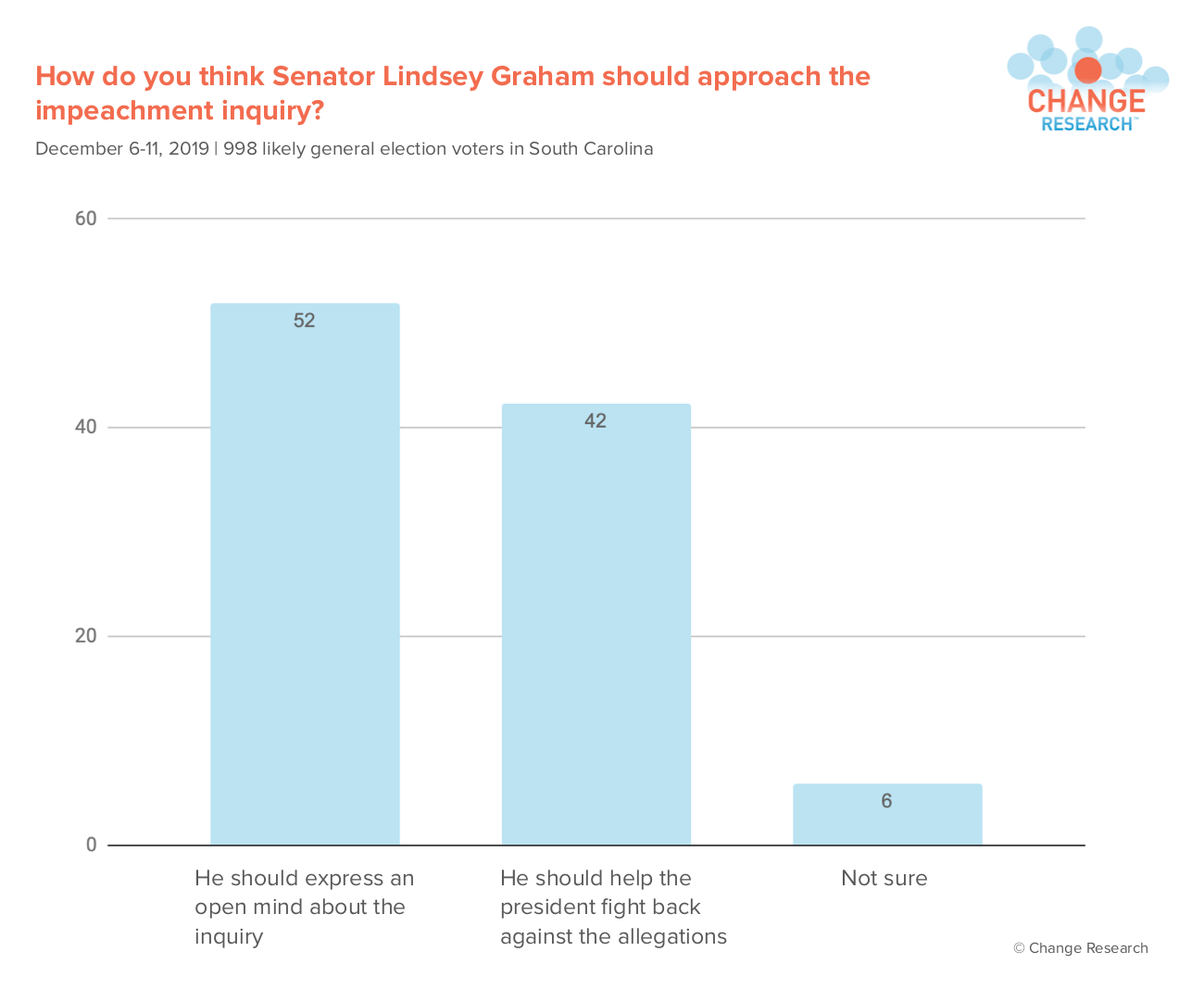Change Research/ Post and Courier South Carolina Poll: December 6-11, 2019
Key Findings
- The horse race is remarkably stable in the wake of Kamala Harris’ departure. Joe Biden leads with 27%, followed by Bernie Sanders (20%) and Elizabeth Warren (19%).
- Senator Lindsey Graham’s favorability is exceptionally low among Independent voters and in hypothetical general election match-ups. He looks extremely vulnerable against Democratic contender Jaime Harrison.
- While South Carolina does not support impeaching President Trump, a majority of voters would like Senator Graham to approach the impeachment inquiry with an open mind, rather than leap to the president’s defense before hearing evidence.
Change Research surveyed 998 likely general election voters in South Carolina, including 392 likely Democratic primary voters, from December 6-11, 2019.
Biden, Warren, and Sanders Lead the Democratic Primary in South Carolina
Joe Biden leads the Democratic primary with 27%. He is followed by Bernie Sanders (20%), Elizabeth Warren (19%), Pete Buttigieg (9%), Tom Steyer (5%), Cory Booker (5%), Tulsi Gabbard (4%), Michael Bloomberg (3%), Amy Klobuchar (2%), and Andrew Yang (2%). All other candidates poll at 1% or less.

Senator Lindsey Graham & the 2020 US Senate Race
Senator Lindsey Graham has a low favorability rating among likely South Carolina general election voters, with 38% of respondents viewing him very or somewhat favorably, and 53% of respondents viewing him very or somewhat unfavorably. 7% of respondents were neutral and 2% of respondents had never heard of him. In particular, Senator Graham fares poorly among Independents, with 60% of Independents viewing him very or somewhat unfavorably and only 28% viewing him very or somewhat favorably. 9% were neutral and 3% had never heard of him.
President Trump has higher favorability numbers than Senator Graham. 51% of likely South Carolina general election voters view President Trump very or somewhat favorably, while 46% of respondents view him very or somewhat unfavorably. 2% of respondents were neutral and 0% of respondents had never heard of him. Among Independents, 51% view him very or somewhat unfavorably and 41% view him very or somewhat favorably. 7% were neutral and 1% had never heard of him.
Senator Graham also does poorly in a generic match-up. 38% of likely general election voters say they will definitely or probably vote for Senator Graham, 53% of respondents say they will definitely or probably vote for someone else, and 10% are not sure.
In comparison, 54% of respondents say they will definitely or probably vote for President Trump, 43% of respondents say they will definitely or probably vote for the Democratic candidate, and 3% say they will vote for a third party candidate.
Finally, Senator Graham leads the Democratic candidate for US Senate, Jaime Harrison, by just 2 points. 47% of likely general voters saying they will vote for Graham, 45% saying they will vote for Harrison, and 9% of voters are still undecided.

Impeachment in South Carolina
A majority of South Carolinians oppose the impeachment inquiry, with 54% opposing and 44% supporting. The same percentage of South Carolinians oppose (54%) and support (44%) the impeachment and removal from office of President Trump. However, a majority of voters want Senator Lindsey Graham to “express an open mind about the inquiry.” 52% of voters say say Senator Graham should keep an open mind, while 42% say he should “help the President fight back against the allegations,” and 6% are not sure.

Poll Top Lines
Sample & Methodology
Change Research surveyed 998 likely primary voters in South Carolina, including 392 likely Democratic primary voters. The margin of error as traditionally calculated is ± 3.1% for the full sample and ±4.9% for Democratic voters. Change Research reaches voters via targeted online ads that point people to an online survey instrument. Our Dynamic Online Sampling delivers large samples that accurately reflect the demographics of a population. Post-stratification was done on age, gender, ethnicity, region, 2016 primary and presidential vote, and self-reported social media use.
